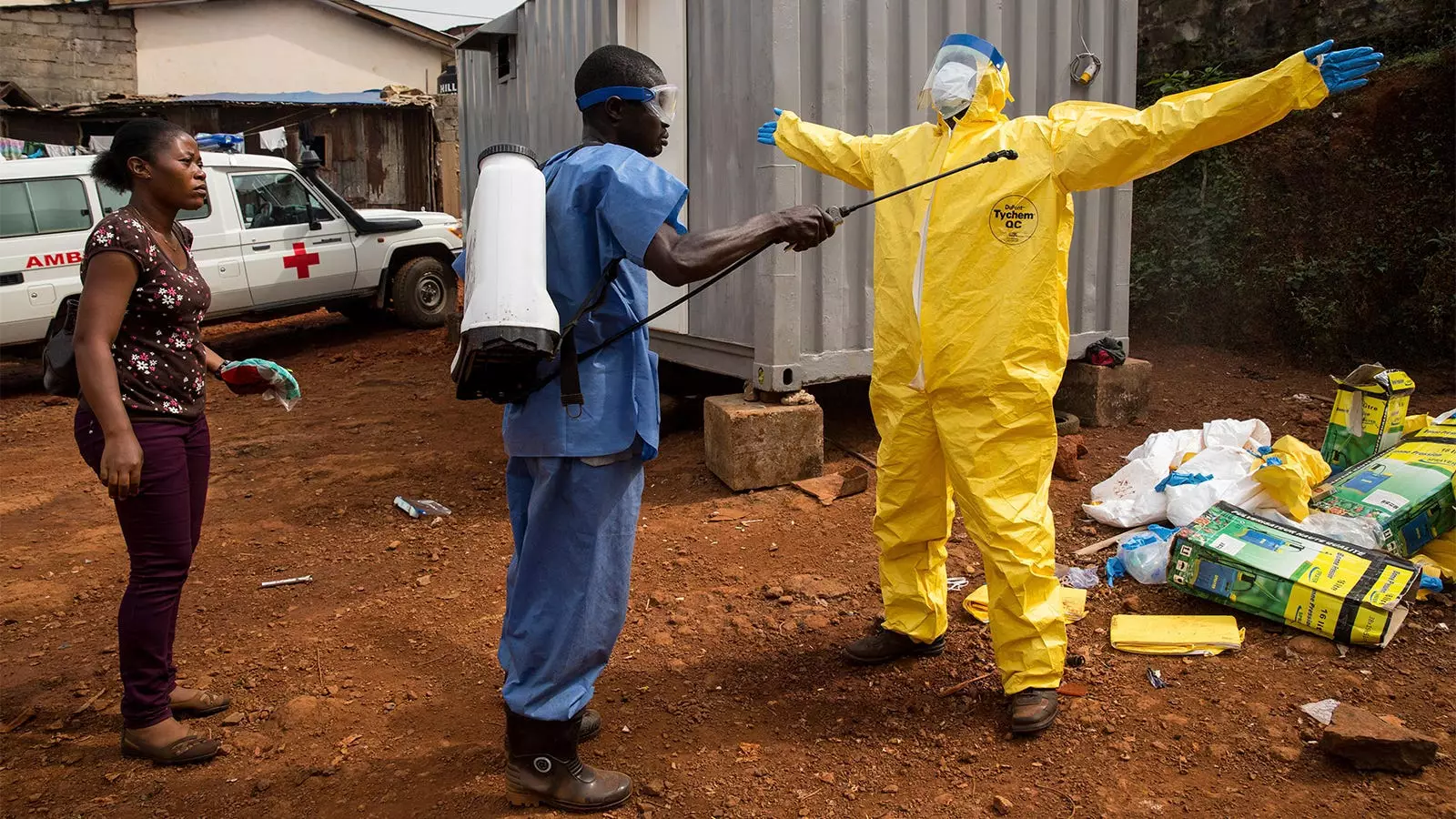The World Health Organization (WHO) has recently released updated infection prevention and control (IPC) guidelines for managing outbreaks of Ebola and Marburg disease. The aim of these updated guidelines is to address the issue of “inappropriate practices” that have been observed during past outbreaks. This is crucial as outbreaks of these deadly viruses have continued to occur even after the devastating West Africa Ebola virus outbreak from 2014 to 2016.
One of the key areas of focus in the updated guidelines is the use of personal protective equipment (PPE). The WHO has highlighted the need to avoid excessive or inappropriate use of PPE, as it can have adverse effects on healthcare workers and the environment. For instance, the routine spraying of chlorine for disinfection during outbreaks has been noted to cause adverse ocular, respiratory, and skin reactions. Instead, the WHO recommends wiping potentially contaminated surfaces with disinfectant as a safer alternative.
Confusion surrounding the use of PPE, such as double gloving and glove disinfection, has also been addressed in the updated guidelines. The WHO now provides clearer recommendations on when double or single gloving should be used, how to disinfect gloves, and when to change gloves between patients. This clarity is essential in ensuring the proper protection of healthcare workers during outbreaks of Ebola and Marburg disease.
While the appropriate use of PPE remains a crucial control measure, the updated guidelines also emphasize the importance of engineering and administrative controls. These measures, such as isolating infected individuals and changing work practices, create a barrier between patients and healthcare workers. However, implementing these controls effectively requires knowledge and collaboration among various agencies and stakeholders.
The updated guidelines also introduce the concept of the IPC “ring” approach, which involves rapid mobilization of teams in areas at risk of infection. This approach, along with recommendations for screening, triage, patient care, environmental cleaning, and safe burial practices, aims to limit potential exposure of healthcare workers during outbreaks. The visual summary provided by Willet and colleagues offers a clear outline of these recommendations for easy reference.
The updated IPC guidelines for Ebola and Marburg disease from the WHO are a crucial step in improving the management of these deadly outbreaks. By addressing inappropriate practices, providing clarity on PPE use, and emphasizing engineering and administrative controls, these guidelines aim to protect healthcare workers and limit the spread of these deadly viruses. It is essential for healthcare facilities and personnel to closely follow these guidelines to ensure the safety of both patients and workers during outbreaks.


Leave a Reply